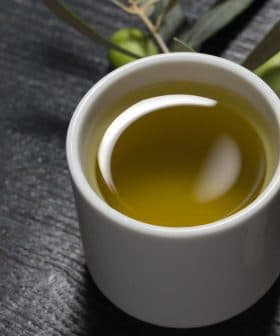Mediterranean Diet with Olive Oil May Prevent Breast Cancer Relapse
A new study suggests that Mediterranean diet including generous amounts of olive oil may reduce the risk of breast cancer relapse compared to a normal diet.
Diet is a significant factor in both the initiation and prevention of breast cancer, with preliminary results showing that following a Mediterranean diet can reduce the risk of cancer recurrence. A study of postmenopausal women found that a Mediterranean diet supplemented with extra virgin olive oil significantly reduced the risk of invasive breast cancer, suggesting that dietary interventions may play a crucial role in cancer prevention and recovery.
Though not the only risk factor, according to researchers, diet is one of the main factors provoking the initiation of cancer, including breast cancer. New preliminary results now shows diet could also prevent breast cancer relapse.
Though the full paper has not yet been released. Preliminary results from a case-control study, published in the Annals of Oncology, included 307 women diagnosed with breast cancer and taken for treatment at the Department of Oncology-hematology, Hospital of Piacenza (Italy). Following treatment of breast cancer, participants were given the choice to follow their normal diets, or accept additional dietary advice to reduce their risk of breast cancer relapse.
See Also:Olive Oil and Women’s Health
The two dietary interventions were therefore, a normal diet or a Mediterranean diet (MedDiet). The MedDiet consisted of high intake of fruit (3 pieces day), vegetables (4 serves day), fish (4 or more servings per week), whole grains (one serve day), and the inclusion of generous amounts of extra virgin olive oil. The women were also able to consume one alcoholic beverage per day. The normal diet consisted of whatever participants had been eating, with the addition of advice on healthy eating from a dietitian. There were 199 participants in the normal diet group and 108 in the MedDiet group.
An in-depth blood sample was collected from participants to assess glucose, cholesterol, various vitamins, minerals and hormones, inflammatory markers, and metabolites. They were required to complete quality of life and physical activity questionnaires.
The results after the preliminary follow-up of 3 years show that the MedDiet has reduced the risk of cancer recurrence. In the normal diet group, a total of 11 participants relapsed, while in the MedDiet group there was zero relapse or recurrence observed. Due to the results from blood test vitamin levels showing higher levels of B‑carotene and pro-vitamin A in participants following the MedDiet, researchers have been very curious about the impact these results could suggest, that diet does, in fact, have a great influence on cancer activation and reactivation.
Such results are not limited to these new preliminary results, as a study recently published in JAMA Internal Medicine, based on evidence conducted within the framework of the Predimed trial, looked at 4,282 postmenopausal women with three different dietary interventions and found the risk of invasive breast cancer was reduced by 68 percent in those that consumed a MedDiet supplemented with EVOO, while there were no such effects for a MedDiet with nuts or a low-fat diet. This study established that the benefits were attributed to increasedextra virgin olive oil intake, each additional 5 percent of calories consumed fromextra virgin olive oil reducing the risk of invasive breast cancer by approximately 28 percent.
Though it’s too early to draw any firm conclusions at this stage, the preliminary evidence has raised the question on exactly what dietary advice should be recommended to people with cancer, or more importantly, those recovering from cancer. Longer studies that include more participants will now be needed to confirm these results.









